Definition
Myocarditis is inflammation of the heart muscle (myocardium). The inflammation of the heart muscle causes degeneration or death of heart muscle cells. Myocarditis has many different causes and can result in a range of outcomes from mild (presenting briefly and resolving) to rapidly progressing fatal disease. It is differentiated from pericarditis because pericarditis is inflammation of the sac that surrounds the heart and does not involve heart muscle as myocarditis does. However, it is not unusual to have a patient present with both pericarditis and myocarditis.
Pathophysiology
The virus damages myocardial cells, which triggers an immune reaction. This can cause the destruction of other myocardial cells or cause cross-reactions between viral and myocardial structures, which produce antibodies. This eventually leads to the inability of the heart to pump properly, resulting in heart failure (viral myocarditis).
Types of Myocarditis
Fulminant Myocarditis
Classical clinical triad is the quick onset of symptoms (usually within 2 weeks), compromised hemodynamic properties and fever. High cytokine production is present and biopsy shows inflammation /necrosis in multiple foci. Even if severe global ventricular dysfunction is identified in echocardiography, minimal dilatation is also noted in the ventricle. This condition can be reversed with early diagnosis and aggressive support treatment (high dose vasopressor agent or ventricular assist device); disease may spontaneously resolve.
Giant Cell Myocarditis (Pernicious myocarditis)
It is related to an auto-immune disease, thymoma, and high degree cardiac block. Giant Cell Myocarditis presents histologically with active inflammation and giant cells (with fusion and multi-nucleus) and progressive heart disease are observed. Prognosis is poor and 1-year mortality is 80% with a mean survival rate of 6 months. Recurrence is possible in the transplanted heart.
Chronic Active Myocarditis
This constitutes the major portion of the adult patients and usually starts insidiously, manifesting clinical symptoms consistent with moderate ventricular dysfunction. Biopsy shows active myocarditis; however, borderline or generalized chronic myopathic changes may also accompany fibrosis.
Eosinophilic Myocarditis
It may be due to various reasons and may be secondary to the direct toxic effect of eosinophilic granules. Eosinophilia might not present in the blood. It may develop in drug-induced myocarditis regardless of the period of administration or cumulative dose. Endocardial and valvular fibrosis or endocardial thrombus may be seen. Acute necrotizing eosinophilic myocarditis is the aggressive form of eosinophilic myocarditis with a high mortality rate.
Autoimmune related myocarditis
It is defined as myocarditis secondary to Churg-Strauss syndrome, sarcoidosis, and systemic lupus erythematous. Autoimmune-related myocarditis is generally resistant to medical treatment.
Risk factors
Risk factors include:
- Viral infections: Coxsackie, Influenza, Rubella, Polio, Adeno, and HIV have all been implicated
- Bacterial infections with agents such as Corynebacterium, Rickettsia, Chlamydia, and Coxiella
- Protozoal infections: Trypanosoma Cruzi which causes Chagas’ disease and is common in South America and Toxoplasma Gondii are both known to cause myocarditis
- Radiation and poisoning can cause myocarditis (agents such as lead)
- Rarely, autoimmune processes may cause myocarditis
Myocarditis causes
There are many possible causes (see below), but the most common cause is a viral infection.
Viral infections such as the viruses that cause the common cold, flu, chickenpox, glandular fever, German measles, gastrointestinal (stomach infections and adenovirus lung infections)
Bacterial infections such as Staphylococcus (sometimes called staph infections), Streptococcus (sometimes called ‘strep infections’) and the bacteria that causes Lyme disease (transmitted by ticks)
Parasitic infections such as toxoplasma which causes toxoplasmosis and is found in cat faeces and Trypanosoma cruzi (in tropical countries this can cause a condition known as Chagas disease and is transmitted by insect bites)
Fungal infections such as molds, yeasts, and fungi
Allergic reactions to medication such as some antibiotics and anti-epileptic drugs or recreational drugs (such as cocaine)
Reactions to chemicals, radiation or radiotherapy such as some cancer treatments
Immune conditions such as Giant cell myocarditis (a very rare condition where some cells in the heart grow abnormally big). This can be associated with autoimmune conditions where the immune system is overactive and attacks healthy cells and organs such as lupus.
It may not be possible to confirm the exact cause of myocarditis. When a cause can’t be found, this might be referred to as idiopathic (or unknown) myocarditis.
Myocarditis symptoms
One of the greatest challenges to the diagnosis and treatment of myocarditis is its lack of specific symptoms. In many cases, individuals experience no symptoms at all. When they are present, symptoms may point to the viral infection itself or suggest other cardiac problems such as a heart attack. Common symptoms can include but are not limited to:
- Shortness of breath, especially after exercise or when lying down
- Fatigue
- Heart palpitations
- Chest pain or pressure
- Lightheadedness
- Swelling in the hands, legs, ankles, and feet
- A sudden loss of consciousness
If any of these symptoms are detected, it’s important to speak to your doctor right away.
Complications
Severe myocarditis can permanently damage your heart muscle, possibly causing:
Heart failure: Untreated, myocarditis can damage your heart’s muscle so that it can’t pump blood effectively. In severe cases, myocarditis-related heart failure may require a ventricular assist device or a heart transplant.
Heart attack or stroke: If your heart’s muscle is injured and can’t pump blood, the blood that pools in your heart can form clots. If a clot blocks one of your heart’s arteries, you can have a heart attack. If a blood clot in your heart travels to an artery leading to your brain before becoming lodged, you can have a stroke.
Rapid or abnormal heart rhythms (arrhythmias): Damage to your heart muscle can cause arrhythmias.
Sudden cardiac death: Certain serious arrhythmias can cause your heart to stop beating (sudden cardiac arrest). It’s fatal if not treated immediately.
Diagnosis and test
It is difficult to diagnose because the symptoms may be mild. They also may resemble the symptoms of many other types of illnesses.
There isn’t one definitive test that tells doctors for sure whether a patient has myocarditis. Tests may include:
- Chest X-ray
- Electrocardiogram- A record of the electrical activity of the heart
- Echocardiogram- Sound waves create an image of the heart
- Cardiac MRI- A three-dimensional image shows the heart’s irregularities
- Cardiac catheterization- Placing a small tube in the blood vessels to evaluate the pressures inside the heart
Our pediatric cardiologists will consider your child’s symptoms and medical history and will look at X-rays and other tests to determine whether your child has myocarditis.
Taking a biopsy (a small sample) of heart tissue through cardiac catheterization can also help doctors make a more definitive diagnosis. However, because this is a procedure with some risks, our medical team may decide not to perform a catheterization.
Treatment and medications
Treatment is aimed at the cause of the problem, and may involve:
- Antibiotics to fight the bacterial infection
- Medicines called steroids to reduce swelling
- Intravenous immunoglobulin (IVIG), a medicine made of substances (called antibodies) that the body produces to fight infection, to control the inflammatory process
- Diuretics to remove excess water from the body
- Low-salt diet
- Reduced activity
If the heart muscle is weak, your provider will prescribe medicines to treat heart failure. Abnormal heart rhythms may require the use of other medicines. You may also need a device such as a pacemaker, or implantable cardioverter-defibrillators to correct a dangerous abnormal heartbeat.
If a blood clot is in the heart chamber, you will also receive blood-thinning medicine. Rarely, a heart transplant may be needed if the heart muscle has become too weak to function.
Prevention
While it is difficult to prevent myocarditis, taking steps to prevent the spread of viral, bacterial and other types of infections may help to reduce the risk.
Measures to prevent myocarditis include:
- Staying home when ill and avoiding exercise and other physical exertion
- Washing hands regularly
- Taking precautions when traveling
Diphtheria immunization may prevent diphtheria-related myocarditis. Avoiding the use of illicit drugs, excessive use of alcohol and exposure to poisonous substances may also lower the risk of developing myocarditis.
 Diseases Treatments Dictionary This is complete solution to read all diseases treatments Which covers Prevention, Causes, Symptoms, Medical Terms, Drugs, Prescription, Natural Remedies with cures and Treatments. Most of the common diseases were listed in names, split with categories.
Diseases Treatments Dictionary This is complete solution to read all diseases treatments Which covers Prevention, Causes, Symptoms, Medical Terms, Drugs, Prescription, Natural Remedies with cures and Treatments. Most of the common diseases were listed in names, split with categories.
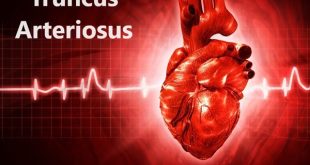
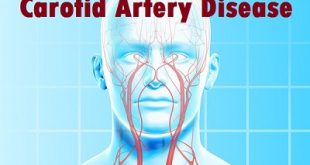
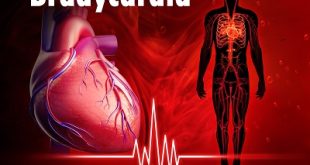
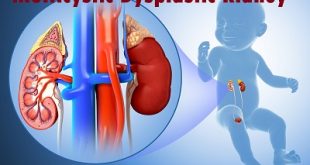

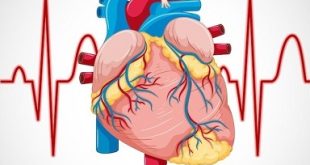
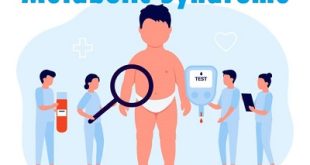

here is not aboutthyronorm disease
Thyronorm is not a disease. Thyronorm is a tablet used to treat the condition called hypothyroidism in which the thyroid gland does not produce thyroid hormones. http://diseasesdic.com/hypothyroidism-definition-pathophysiology-and-symptoms/
if it is heart attack how to avoid
Daily follow the cardiac exercises and appropriate diet in order to reduce the accumulation of cholesterol.
In February last year, out of nowhere, my eyes became light sensitive, had slurred speech, my vocal cords seemed strained and my legs/hands began to shake uncontrollably, and I was diagnosed of PARKINSON DISEASE. I started out taking only Azilect, then Mirapex and sinemet as the disease progressed but didn’t help much. In July, I started on PARKINSON DISEASE TREATMENT PROTOCOL from Herbal Health Point (ww w. herbalhealthpoint. c om). One month into the treatment, I made a significant recovery. After I completed the recommended treatment, almost all my symptoms were gone, wonderful improvement with my movement and tremors . Its been 6 months since I completed the treatment, I live a better life..
I got heart attack in 2002.It was doagnosis Myo cardial infarction & under gone Angioplasty in 2006 with two stent( PTCA). Mepresor 100mg, Lowplat Plus 75mg,
Misar, Rolip 10mg are taking
By the grace of God, now I improved. Some times feels slightly pain in chest but its ok
I have get experience my heart has changed it’s pulse:- How can I do now It’s almost one month now
Please consult a cardiologist for a better diagnosis of the cardio problem.
how does the stent in angioplasty causes endocarditis
Stents used in angioplasty, while beneficial for coronary artery disease, pose a rare risk of endocarditis, an infection of the heart’s inner lining. This risk arises from the potential introduction of bacteria into the bloodstream during certain medical procedures. Individuals with stents may be advised to take antibiotics before specific procedures to minimize this risk, and any concerns or symptoms of infection should be promptly addressed with healthcare providers.